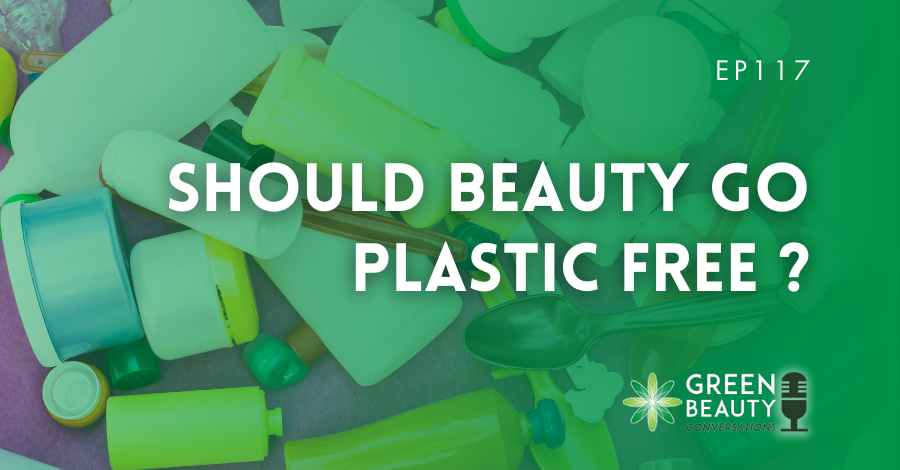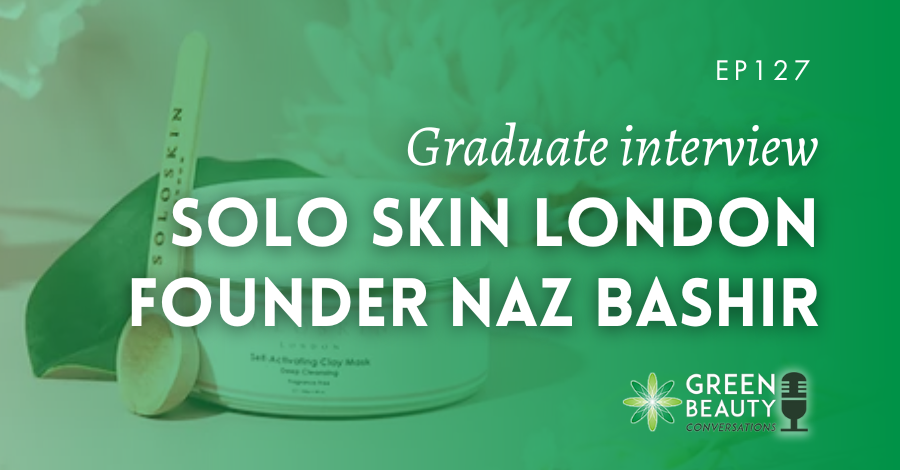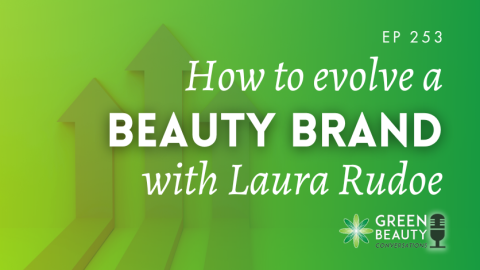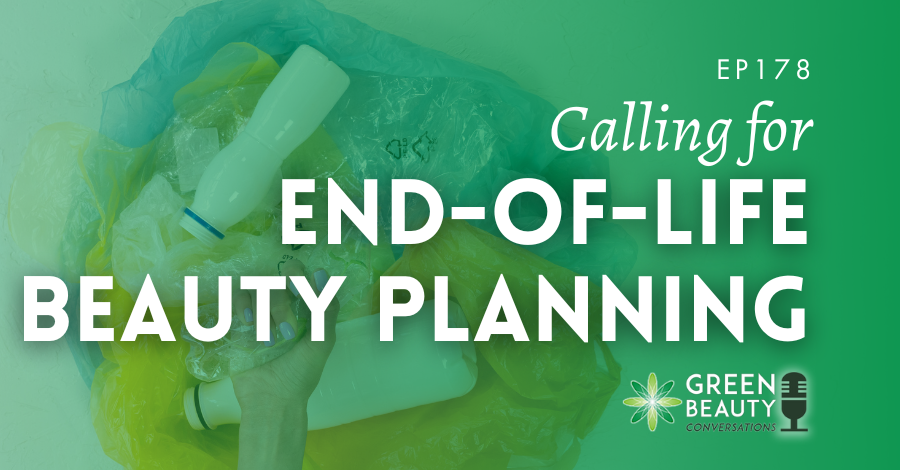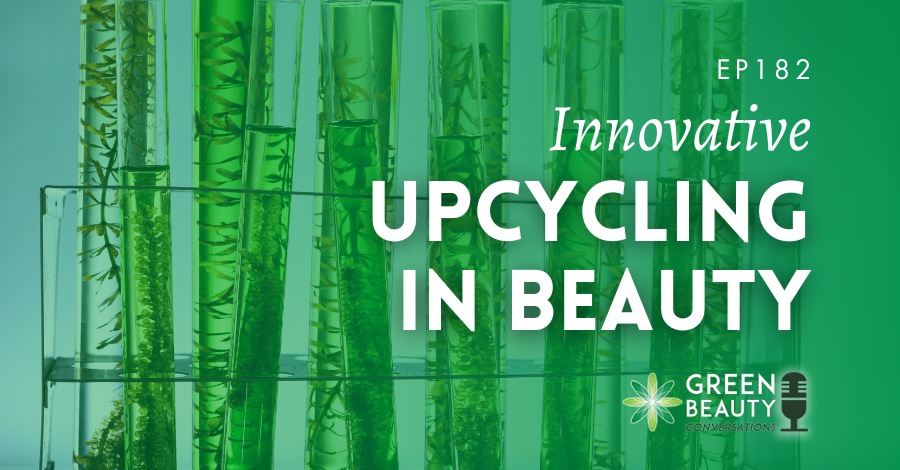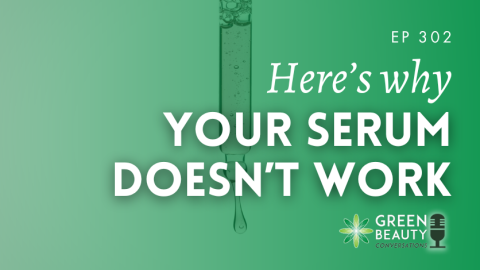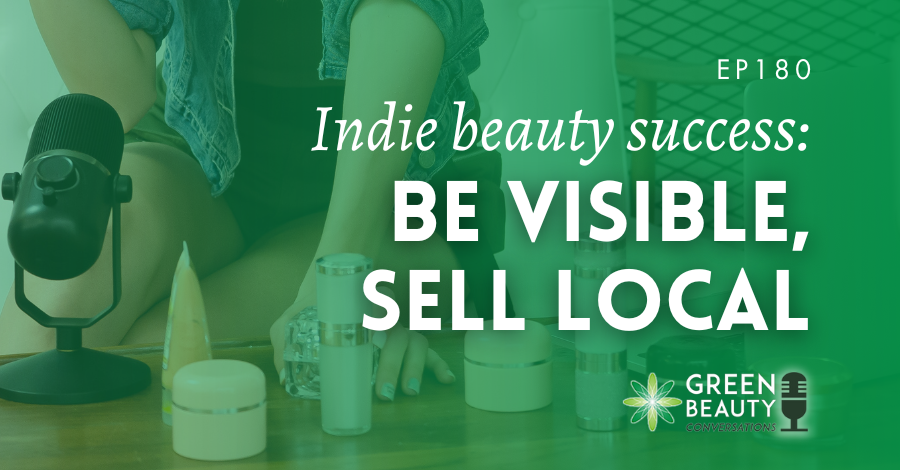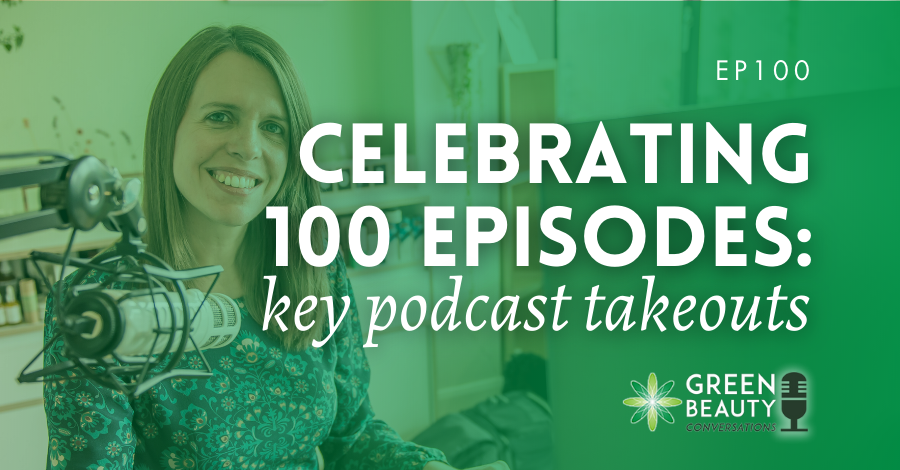To mark Plastic-free July, a global movement to rid the world of plastic waste, Formula Botanica CEO and podcast host Lorraine Dallmeier has dedicated several episodes of Green Beauty Conversations to plastic use in the beauty industry.
Podcast 115: the microplastics hiding in your cosmetics
Podcast 116: Why we must ditch plastics in cosmetics
Having looked at the shocking extent to which plastic is present within beauty formulations in liquid microplastic forms, in this episode Lorraine tackles plastic in beauty packaging. This seems more familiar territory and all of us would agree that we wish to see the beauty industry and its consumers reduce, reuse and recycle plastic packaging. But, as the figures show, the challenge is great.
Half of all plastics ever manufactured have been made in the last 15 years and production of plastic has increased exponentially from 1.5 million tons in 1950 to 367 million tons by 2015. An incredible 8 million tons or so of plastic waste escapes into the oceans from coastal nations. As we know from our episode on biodegradability, plastic can take about 400 years to break down in the environment.
Any discussion on plastic packaging and the millions of tons of waste it produces is fraught with complexity and seemingly irresolvable problems. Where do we start as small beauty businesses to play our part in reducing plastic waste when the figures are so daunting? There are ways to start small, and still make a difference. In this episode we hear from one pioneering social enterprise that is literally removing plastic waste and helping companies of all sizes reduce their dependency on plastic.
rePurpose Global is the world’s leading plastic action platform dedicated to reducing waste, reviving lives and restoring nature’s balance. Lorraine talks to Peter Wang Hjemdahl, co-founder and Chief Advocacy Officer at rePurpose Global, about the creative, yet practical ways the social enterprise is tackling plastic packaging from its source in supply chains to its end of life in waste mountains. Listen in for some positive news on how our plastic dependency is being tackled.
@FormulaBotanica podcast talks to social enterprise @rePurposeGlobal about how indie beauty can reduce, reuse and recycle plastic and aim to be plastic free. #plasticfree #repurposeglobal #beautypackaging Share on X
In this episode on plastic packaging, you will hear about:
- the three key ways rePurpose Global helps fast-moving consumer goods companies, including beauty and personal care, to reduce their use of plastic. It does this by measuring their plastic footprint and using this data to advise on how to reduce and remove plastic in supply chains, and then by offering offsetting through a plastic credits’ scheme that works along similar lines to carbon offsetting.
- how rePurpose Global was born of the co-founders’ personal desire to alleviate the human and environmental degradation associated with waste as demonstrated by the lives of so-called waste pickers.
- why rePurpose Global believes it is possible to see a 50% reduction in the use of virgin plastics and how a circular economy in plastic can play its role, even if not covering all plastics produced.
- Why rePurpose Global believes its plastic offsetting and Plastic Neutral accreditation is not a license for companies to carry on polluting with plastic. For every gram to ton of offsetting companies finance, the same amount of non-recyclable plastic is removed from the environment; this has to be a good thing, they say.
Key takeouts include:
- The beauty is one industry whose consumers really care about plastic pollution. rePurpose Global has seen beauty companies keen to not just become plastic negative, but also go all out to be plastic neutral by taking steps to help remove legacy plastic pollution and do more to take plastic out of the environment than they put in.
- Post-consumer-recycled plastics (PCR) are not the magic bullet solution as they are costly to produce, but they can contribute to a circular economy in plastics. rePurpose Global is working to remove thousands of tons of plastic waste to be used as PCR feedstock.
- Removing plastic packaging means using other forms of packaging and beauty companies must look carefully at the carbon footprints of alternatives when making packaging decisions. Total removal of plastic from beauty packaging may not be the right goal to aim for.
- From mom-and-pop-scale businesses to large conglomerates, every firm in the beauty and personal care sector can be involved in rePurpose Global’s schemes. Any amount, however small, of plastic footprint measured can be offset against the same volume of plastic waste pollution.
Meet the guest: Peter Wang Hjemdahl

Prior to his entrepreneurial journey, he strategised business growth for social ventures across four continents as well as advised on social impact finance for development institutions such as the World Bank and USAID. Peter is a proud graduate of University of Pennsylvania’s Wharton School, and has been awarded membership in several notable cohorts, such as Forbes 30 Under 30, Halcyon Fellowship, World Economic Forum Young Global Shaper, President’s Engagement Prize, BMW Foundation Responsible Leaders Network, and St. Gallen Symposium Leader of Tomorrow.
Peter has frequently spoken on sustainability, social entrepreneurship, and purposeful business at forums such as Aspen Institute, Ellen MacArthur Foundation, TEDx, Sustainable Brands, and United Nations.
If you enjoyed this discussion, you might also like to listen to these episodes covering sustainability in the beauty industry:
Why we need responsible mica in cosmetics
Innovative beauty packaging with mushrooms and seeds
Biodegradable beauty: a license to greenwash the beauty industry?
Top sustainability challenges and concerns for the beauty industry
Are indie brands falling behind on sustainabiity?
Can a beauty brand ever be carbon neutral?
Thank you for joining us for this episode of the Formula Botanica Green Beauty Conversations podcast. If you enjoyed listening, please share, subscribe and review this episode on Apple Podcasts, Spotify or Youtube so that more people can enjoy the show. Don’t forget to follow and connect with us on Facebook and Instagram.
FREE TRAINING
Learn how to become an
Organic Skincare Formulator
FREE TRAINING
How to become an
Organic Skincare Entrepreneur
FREE TRAINING
How to become an
Organic Skincare Entrepreneur
Leave us a comment
Lorraine Dallmeier is a Biologist, Chartered Environmentalist and the CEO of Formula Botanica, the award-winning online organic cosmetic science school. Read more about Lorraine and the Formula Botanica Team.

